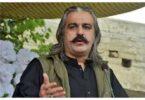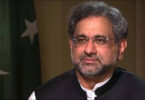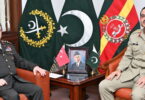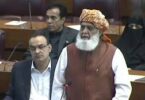ISLAMABAD (APP): Chief Election Commissioner (CEC) Sikandar Sultan Raja on Tuesday said that the Election Commission of Pakistan (ECP) is committed to ensure taking steps for having an effective participatory role of minorities, persons with disabilities, transgender and women in the country’s electoral process.
Addressing the ceremony held in connection with International Women’s Day, the CEC said that no nation can progress in any field of life without the active participation of women.
He said, “The day realizes the importance of women’s role in the society for social, economic and political evolution. No nation can move forward until having equivalent participation of women along with men.”
He acknowledged that women have an active and courageous role in the electoral process in the country as voters, security personnel, polling agents, observers, election staff members, political workers and as journalists.
He added they face all hardships with the bravery to strengthen the democratic process. He said that under Article 218(3) of the Constitution of Pakistan, the ECP is responsible to hold independent, free, fair, transparent, and impartial elections in the country. He added under article 25(2), it is also the responsibility of ECP to ensure participation of all segments of society in the electoral process without any fear or threat and on an equal basis.
He assured that the commission will continue working on its mission of effectively and play its constitutional and legal role in an appropriate manner in the country. He said that the ECP in coordination with the stakeholders has arranged consultative activities at the national and provincial level with an objective to get valuable suggestions for further strengthening the role of minorities, persons with disabilities, transgender and the women in the election process.
He hoped that all such recommendations from these events, particularly from participants, civil society, women, and departments concerned will be of great worth for the ECP to further focus its work on the area.






